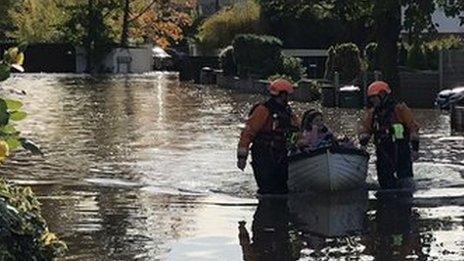Protected River Lugg was 'bulldozed' in 'wildlife crime'
- Published
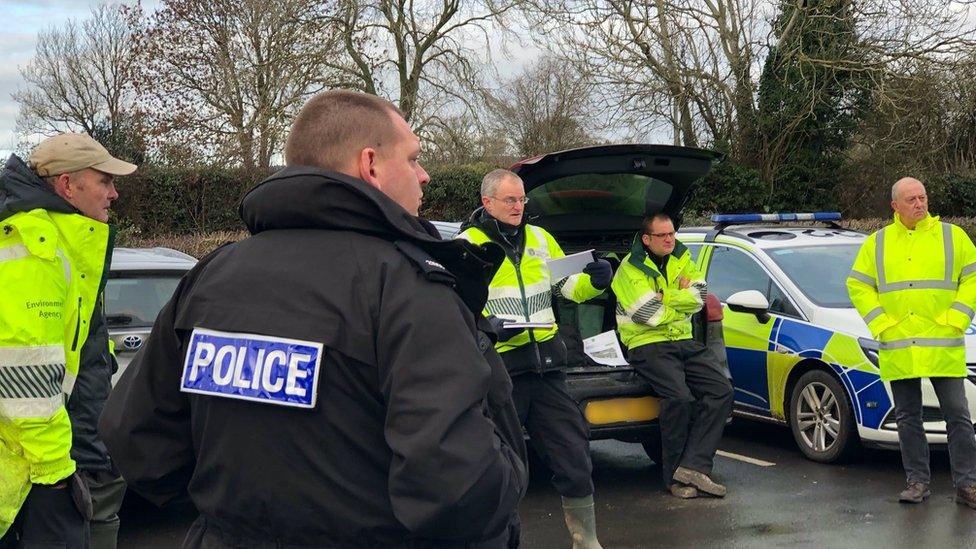
The Environment Agency was at the scene earlier
The Environment Agency has forced its way on to a section of a river after reports it had been "bulldozed" in what the local wildlife trust described as a "crime against the environment".
The protected stretch of the River Lugg had been "completely obliterated", Herefordshire Wildlife Trust said.
It added the work would have "huge repercussions for wildlife downstream".
The Environment Agency is leading an investigation into what it said was a "series of unconsented works".
West Mercia Police, Natural England and the Forestry Commission are also involved.
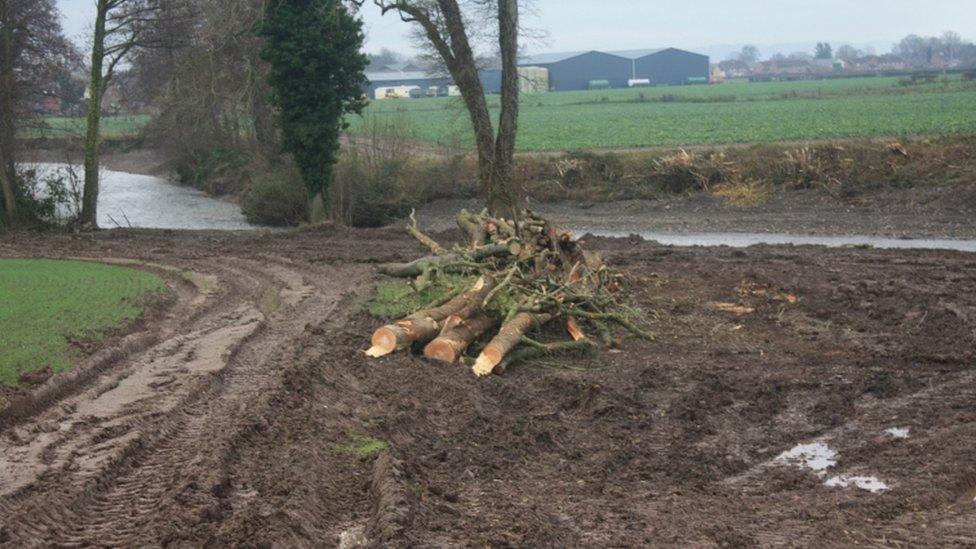
Bulldozers are said to have caused damage to the area, Herefordshire Wildlife Trust said
Emma Johnson, from Natural England, said: "I'm shocked by the destruction I've seen to this very special river."
The wildlife trust said all habitats had been badly affected after a one-mile stretch (1.5km) of the river and its banks were "bulldozed, straightened and re-profiled into a sterile canal".
Wildlife affected is believed to include crayfish, otters, salmon, lampreys and dragonflies.
Dave Throup, area manager for the Environment Agency, said it was "treating this very seriously" and had "taken immediate action in an attempt to prevent any further works at the site".
The wildlife trust said it hoped for a prosecution after it claimed a 16-tonne bulldozer was used by people "well aware" the river was a designated Site of Special Scientific Interest (SSSI).
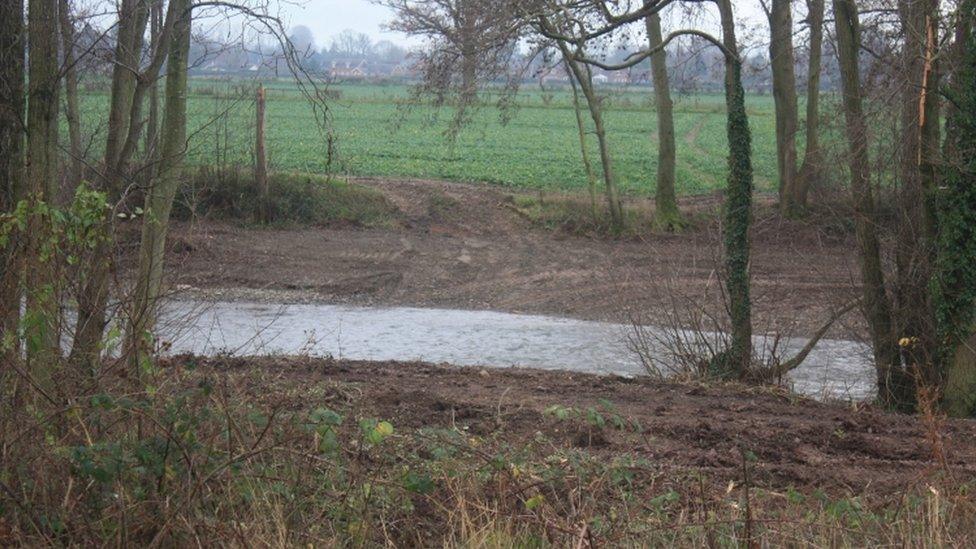
The River Lugg is a protected site
"The bank-side trees are all grubbed out and burnt, the river gravels have been scraped away, and the beautiful meanders of the river have been straightened and re-profiled," Chief Executive Helen Stace said.
"This is a crime against the environment. Swift action needs to be taken."

What are sites of special scientific interest?
They are formal conservation areas, that often contain important habitats such as grasslands, parkland and woodland.
Some contain ancient woodland and ancient trees.
The areas have high conservation value and need to be protected.
Natural England determine which sites should have SSSI status.
England has more than 4,100 sites covering more than 4,200 square miles. Over half of this area is internationally important for wildlife.
Source: Woodland Trust, external

A legal notice requiring the works to stop immediately had been served to the landowner by Natural England, the Environment Agency said.
Mr Throup added: "This is a beautiful part of the world. To see the changes from last week to this is terrible. We're working closely with our partners to ensure this is thoroughly investigated."

Follow BBC West Midlands on Facebook, external, Twitter, external and Instagram, external. Send your story ideas to: newsonline.westmidlands@bbc.co.uk , external
Related topics
- Published17 September 2020
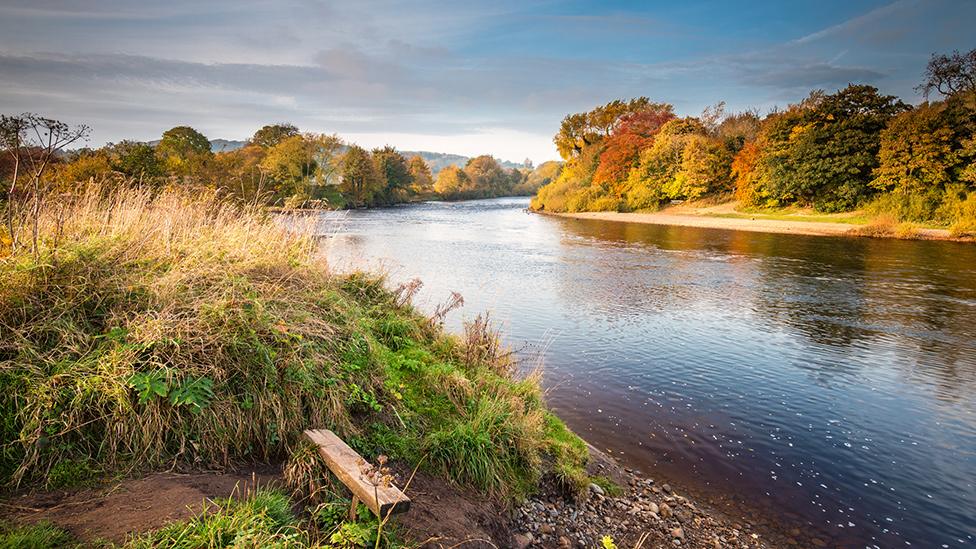
- Published31 August 2020
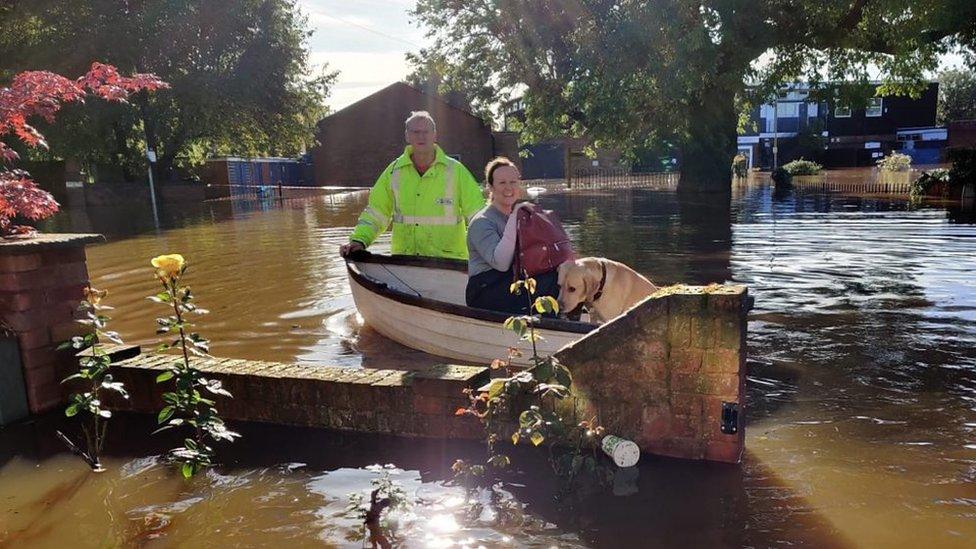
- Published16 February 2020
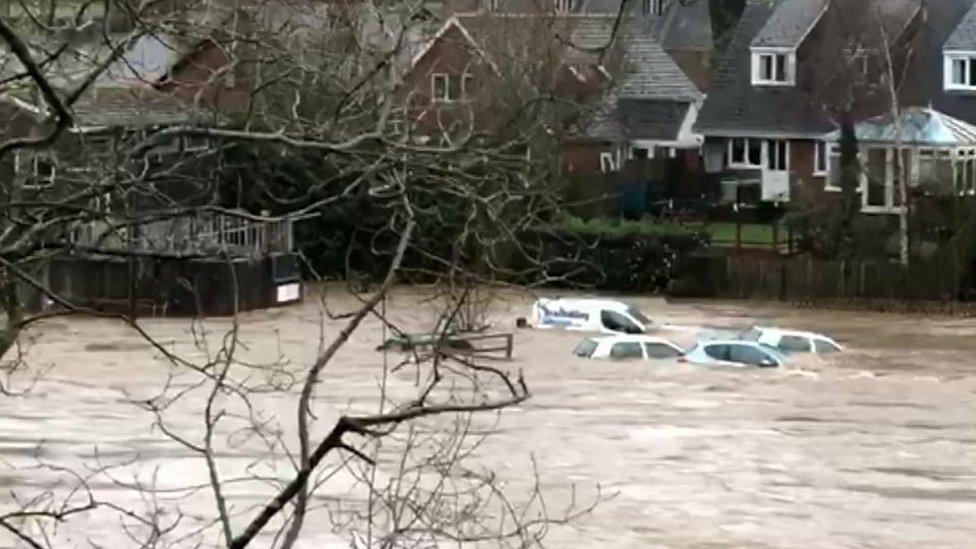
- Published27 October 2019
